Did you know being obese is more harmful than being underweight? This is because emotions and obesity are closely linked. Research found that eating habits among obese people are frequently related to boredom, anger, depression. Read on to know the relationship between emotions and obesity.
Worldwide obesity has almost tripled since 1975 according to the World Health Organization. It is affecting adults, children, and teenagers. In 2016, 39% of adults aged 18 years and over were overweight and 13% were obese. In 2019, 38 million children under the age of 5 were overweight or obese.
Do You Think Overweight Equals Obesity?
Before understanding, that being overweight is the same as being obese, let’s get something straight.
First, why do we need fat?
Fat or adipose tissue is very important for our normal body function. Without fat, our body will not get the energy that we need to live. Also, fat is a carrier of different vitamins and supports its absorption in the intestine. Act as messengers and help proteins and nutrients to do their job as well as protect various body organs.
There is a relentless cycle of creation and destruction of fat cells in our bodily system but our body maintains a fixed number of fat cells mainly during adolescence but growth in number can also occur in adulthood.
Secondly, What Does Overweight And Obese Mean?
1. Overweight in simple terms is “excess of body weight,” and is defined as having a body mass index (BMI) above 25.
2. But, obese is referred to as “excess of fat” and is defined as having a body mass index over 30
BMI is the formula used to assess body weight in relation to height. A simple index of weight-for-height gives a measure of your body composition. BMI is found to be an effective predictor of body fat but doesn’t directly measure body fat.
As you can see overweight and obesity labels for BMI (or ranges of weight) are greater than what is considered to be healthy for a given height.
A person can become overweight at any age but the timings may vary for men and women. Most women who are overweight gain their excess weight after puberty, or maybe due to – oral contraceptives, pregnancy, and menopause.
Related: 6 Reasons You May Be Gaining Weight Unintentionally: The Science Behind Obesity
In men weight gain is associated with the transition from an active lifestyle at a young age to a sedentary lifestyle later. The excess weight may remain stable and decline after the age of 55-64 years.
Accumulation of fat in the body doesn’t always lead to obesity.
No doubt fat makes a person heavier. But the amount of fat present in the body may not be reflected in a person’s overall weight. From an anatomical perspective muscle mass decreases with the increase in fat. So, even if the number of pounds you weigh increases, it cannot measure or predict the fat in your body.
Just like an increase in weight doesn’t indicate a fat look, losing weight also doesn’t mean a skinny look.
How Does One Become Obese?
In adults, adipose tissue or fat is a loose cluster of lipid-filled cells called adipocytes. Lipids are a group of fat and fat-like substances including cholesterol. When fat cells are filled with lipids they grow and become larger than their original size. When adipocytes reach a critical size, other young and unspecialized cells in our body turn into more fat cells.
As a result of this process, the number of fat cells increases. Whether the fat cells increase in size or increase in number, both mechanisms increase our weight making us obese. There is no way we can get rid of fat cells, but you can shrink them.
Related: Weight Bias in Healthcare: The Truth About Obesity
The number of fat cells remains almost the same when you reach adulthood. But as you put on weight, the fat cells enlarge in size and shrink when you lose weight. Remember that weight loss means a reduction in the volume of fat and not the number of fat cells.
So, if you don’t want to become overweight or obese, your goal should be preventing the accumulation of fat cells.
Researchers found that people aren’t worried about their body weight, but their body image, body shape, and appearance. Everyone wants to look beautiful and dress up in an impressive way.
Unfortunately, the accumulation of fat in some parts of the body ruins that “perfect figure” concept that you have created in your mind. Someone with excess fat at the sides of the waist or hanging over the top of pants becomes undesirable. So, such people tend to lose weight in the quest to gain that perfect figure. However, a person with love handles, and the one with a slender figure and more muscles may have the same weight.
From a psychological perspective, it is not the weight that is upsetting people but the difference between their actual figure and the “perfect” figure image in their minds i.e weight stigma.
Related: Ultimate Calorie Portion You Must Take For Weight Loss
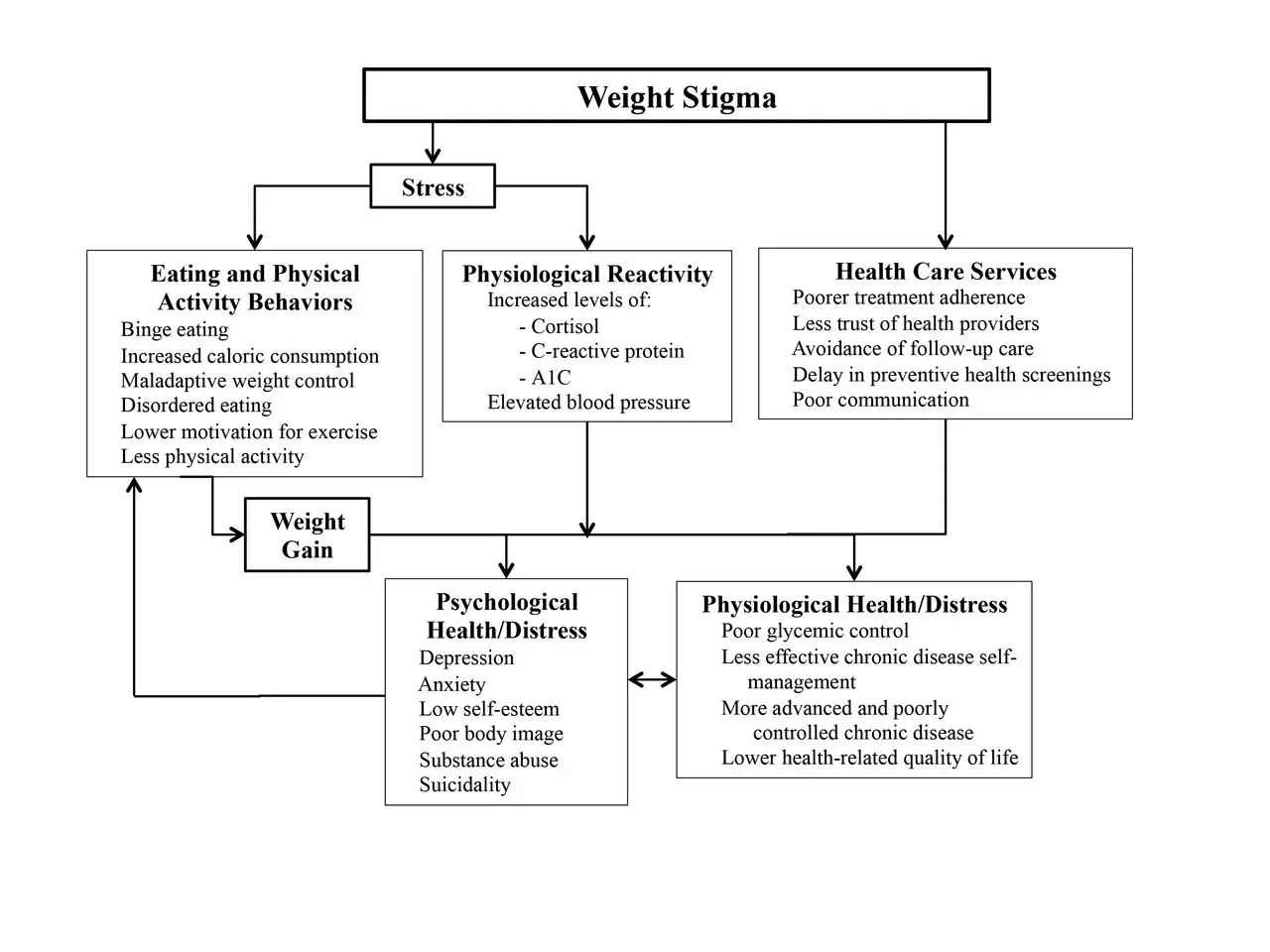
How Do Emotions Stop You From Preventing Weight Gain?
Well, there is a bulk of literature available on the scientific process of weight gain. There are people who easily put on weight and their bodies also display resistance in using the accumulated fat, according to Dr. Luis Chiozza,
The doctor investigated whether fat serves as a calorie or energy reserve and found various unconscious factors or fantasies playing a role in obesity.
According to him, fat accumulation is an adaptive response.
- We reserve fat thinking that tough times may come and it can be used as a backup. This fantasy of long term reserves is similar to what most migratory birds do. They increase the amount of fat before embarking on a long journey to prevent energy exhaustion. A similar phenomenon exists for humans as well.
- Self-sufficiency is another unconscious factor that stimulates fat accumulation. It means being independent and to survive without needing anything from anyone.
- And the last fantasy is getting out of ideal body shape (perceptions like being thin means you are sick), which motivates people to accumulate fat and gain weight.
Related: How To Turn Your Painful Emotions Into Superpowers
Obesity and defense mechanism
According to Doctor Chiozza, obesity is a kind of defense mechanism emerging due to unconscious conflict related to a feeling of incompetence.
You are accumulating fat to reserve yourself for an action that you don’t ultimately undertake out of fear of not being able to do it right. Overweight people are increasing in number to compensate for the feeling of defenselessness.
No doubt it is hard to feel incompetent and obesity is the best defense. When it comes to obesity, the physical risk of being overweight is always there. And there is a psychological risk that is not fitting society’s idea of a perfect or beautiful figure. These are two different things and normally coexist. This highlights how emotions and obesity are associated.
According to Chiozza, there is a need for proper evaluation and to understand a person’s emotions and motivational level. That can help determine if an obese or overweight person can follow a specific diet and exercise guidelines because they are the main regulators of weight.
Self-regulation, emotions and obesity
There is also intense research conducted on the relationship between emotions, obesity, and emotional regulation. According to a study, poor self-regulation skills in the early years were predictive of being overweight in early childhood.
According to the article titled – Importance of emotional regulation in obesity and weight loss treatment – various theories have emerged explaining the relationship between emotions and intake of food in three major perspectives.

Source: (Czepczor-Bernat and Brytek-Matera 2020)
- Negative self-awareness
According to this theory, a person engages in binge eating to escape from negative self-awareness or ego-threatening information.
- Positive emotions
Some people seem to overeat to obtain pleasure in the form of good taste and odor or to experience the joy of eating forbidden food.
- Avoid stress
This theory means people engage in overeating to wrongly attribute perceived stress to eating. Such behavior helps them avoid things causing stress.
Related: Emotional Muscle Memory: How To Release Painful Emotions Trapped In Your Body
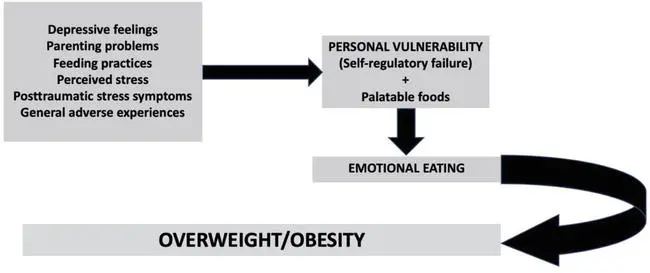
All of the three theories are based on the assumption that people overeat after having some sort of negative experience that they are unable to regulate. Researchers say that overeating is related to unhealthy emotional processing or poor emotional regulation strategies to an extent in which emotion is dealt with. This type of overeating is called emotional eating. At the end of the day, we are responsible for what we put in our mouths.
Related: How a Keto Diet Can Improve Your Physical and Mental Health
Another related paper titled Feeding your feelings: Emotion regulation strategies and emotional eating, highlighted three theories to explain the association between emotions and eating behavior.
- Psychoanalytic theory
This theory presumes that people engage in overeating to escape from anxiety and discomfort
- Internal/external theory
It assumes that people who are overweight cannot recognize physiological hunger or satiety cues’ because of a default in learning
- Restrain hypothesis
It proposes that people who restrict their food intake end up overeating at times of stress.
These three theories to some extent correlated with previous theories mentioned above. It can be concluded that emotions play a great role in food intake, weight gain, and obesity.
Related: 8 Ways You Can Regulate Your Emotions
Some studies on the effect of eating behavior on mood showed paradoxical results. While some people intake excess carbohydrates during the negative moods, some eliminate carbohydrates from their diet to cope up with negative moods. Also, eating as an emotional regulation strategy is found in normal eaters besides restrained eaters and binge eaters.
In the paper titled, “How emotions affect eating: a five-way model”, results showed that anger, fear, and other negative emotions led to impulsive eating to regulate the emotional state and intake of fast food. On the other hand, positive emotions like joy increase the consumption of healthy food and food pleasantness.
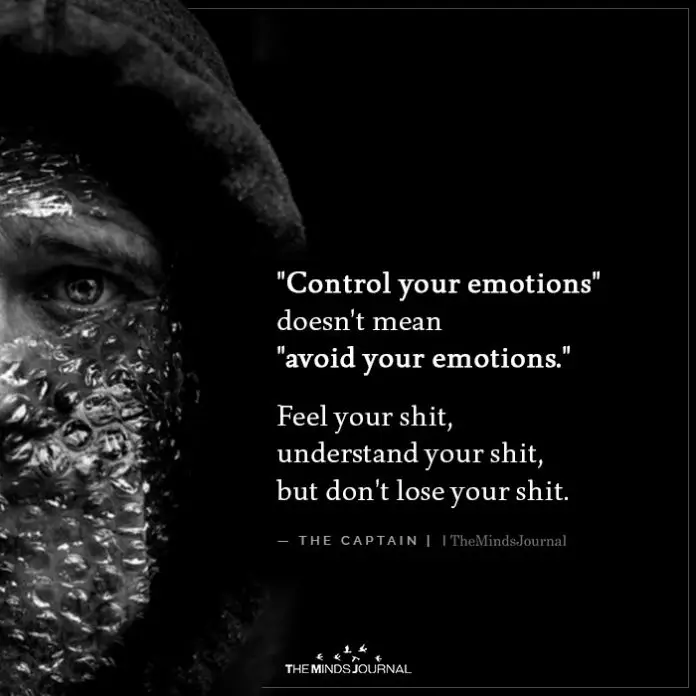
Another literature review highlighted that when overweight individuals experienced negative emotional states, they consumed more food than normal-weight and underweight individuals. However, in the case of positive emotional states or situations, underweight individuals reported eating more than the other two groups.
Related: Intermittent Fasting For Weight Loss: Does It Actually Work?
Although the theory of emotional eating is clear – that it’s a strategy to regulate negative emotions – there is no explanatory model as of yet explaining the distinct ways in which emotions can affect the entire process of eating food and factors like –
- Motivation to eat food
- Food choices
- Effective responses to food
- Chewing
- Eating speed
- Amount of food intake
- Metabolism and digestion
Bottom Line
In short, the emotional state is responsible for eating more or eating less and weight gain or weight loss respectively. Both internal factors like hormones, emotions, pleasure, and conditioning, and external factors like social norms influence hunger, eating, and healthy food choices affect weight. You may say emotions and obesity are part of the relentless cycle. Good or bad emotions trigger you to eat more, become obese, which in turn triggers good or bad emotions.
Obesity is a problem that nearly every nation in the world is facing, but there is much that we can do to fix it – Richard Attias
There is a need to focus more on the different effects of different emotions and how they contribute to perpetuate mechanisms in weight gain and morbid obesity. So, effective weight loss treatments can be designed. If you are suffering from emotional eating and obesity, then it’s time to work on emotional self-regulation by seeking professional help.
By eating many fruits and vegetables in place of fast food and junk food, people could avoid obesity – David H. Murdock
References
Canetti, L., Bachar, E. and Berry, E., M.,(2002). Food and emotion. Behavioural processes, 60, pp.157-164.
Evers, C., Marijn Stok, F. and de Ridder, D.T., 2010. Feeding your feelings: Emotion regulation strategies and emotional eating. Personality and Social Psychology Bulletin, 36(6), pp.792-804.
Christensen, L., 1993. Effects of eating behavior on mood: a review of the literature. International Journal of Eating Disorders, 14(2), pp.171-183.
Czepczor-Bernat, K. and Brytek-Matera, A., 2020. The impact of food-related behaviours and emotional functioning on body mass index in an adult sample. Eating and Weight Disorders-Studies on Anorexia, Bulimia and Obesity, pp.1-7.
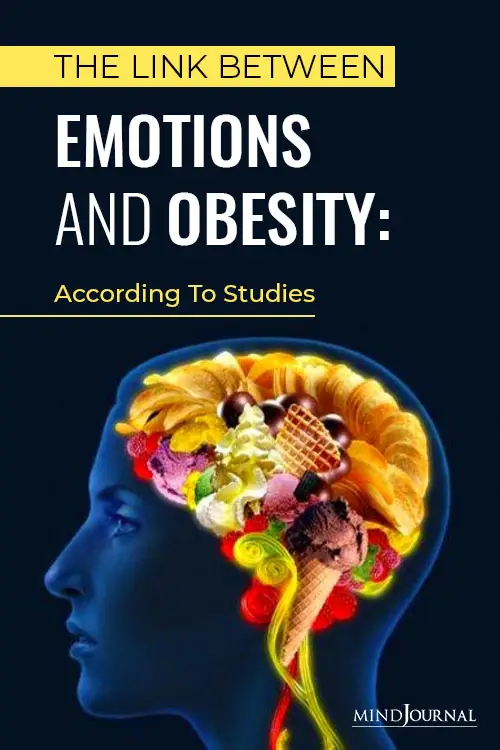
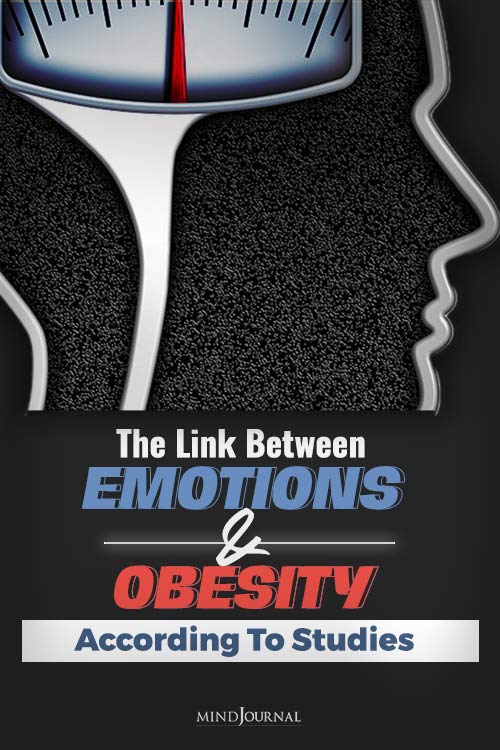
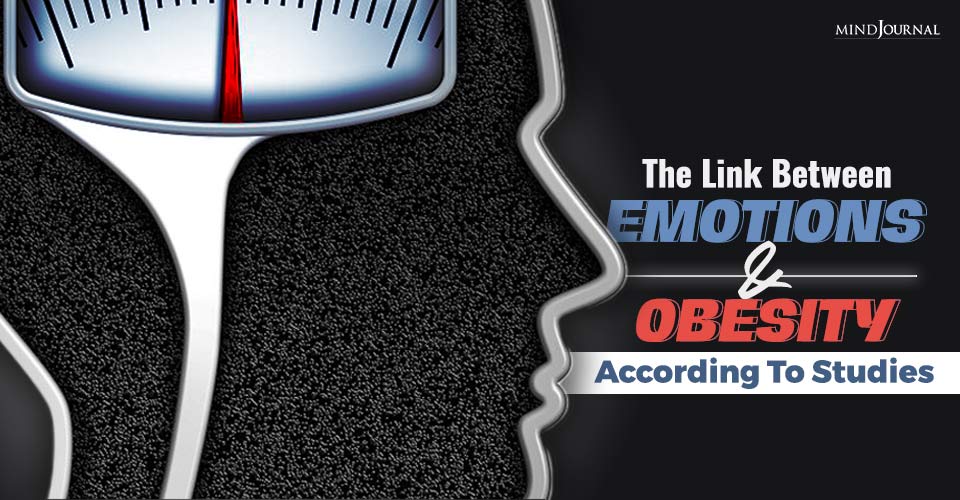



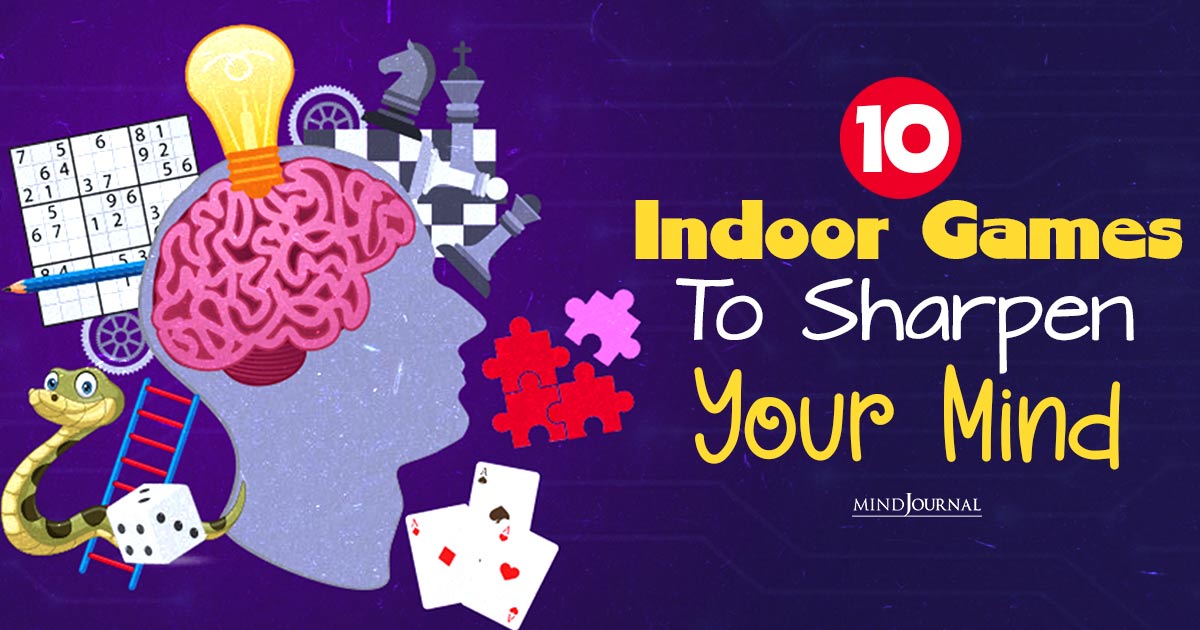

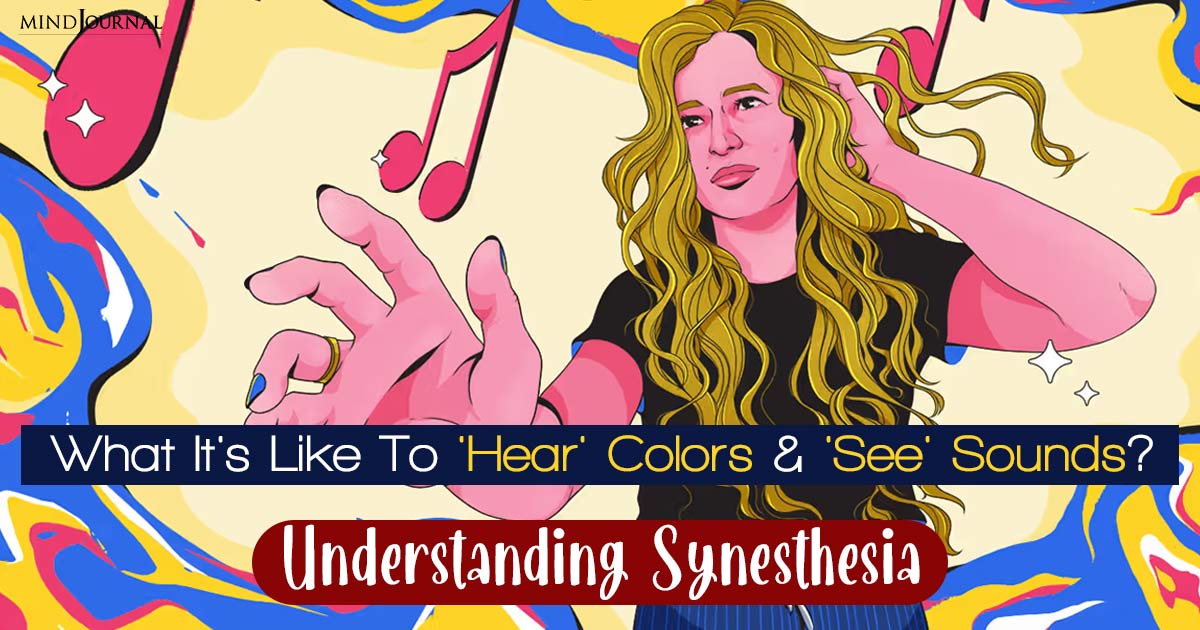
Leave a Reply
You must be logged in to post a comment.